It turns out that dogs can't understand the subtle differences in words spoken by humans

Dogs are animals that have been kept as human partners all over the world for a long time, and not only are they petted as pets, but there are also smart dogs such as guide dogs and drug detection dogs that are useful to humans. However, a new study conducted by a Hungarian research team found that 'dogs cannot understand the subtle differences in words spoken by humans.'
Supplementary material from 'Event-related potentials reveal limited readiness to access phonetic details during word processing in dogs'
Dogs may never learn that every sound of a word matters
https://phys.org/news/2020-12-dogs-word.html
Dogs will never speak human. Here's why. | Live Science
https://www.livescience.com/dogs-word-processing.html
Pet dogs and babies share one frustrating trait, study reveals
https://www.inverse.com/science/dogs-babies-share-one-frustrating-trait
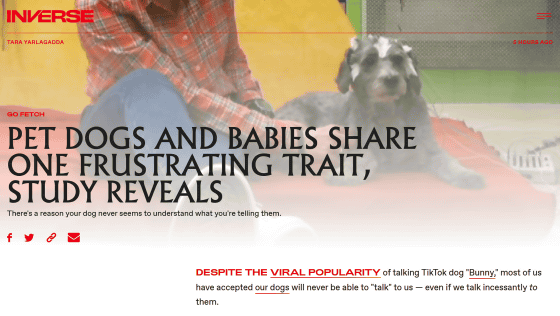
Dogs have high social cognitive and communication skills, and can listen to human instructions and perform some collaborative work. However, there are not so many human words that dogs can generally recognize, so it is not possible to communicate with humans as if they were talking.
Hungary wondered why dogs have good hearing but cannot fully understand human language, 'maybe there is a hint to the brain's ability to process human language.' A research team at the University of Etowesh Lorand conducted an experiment to measure the brain waves of dogs listening to human language with electrodes.

In the experiment, 17 dogs were guided to the laboratory with their owners, and after the dogs got used to the room and researchers, they sat on the mattress with their owners, and after the dogs relaxed, they attached electrodes to their heads. thing. 'EEG is sensitive not only to brain activity but also to muscle movement, so we needed to reduce dog muscle activity as much as possible during the measurement,' said Lilla Magyari, the lead author of the paper. I am.
In addition, none of the dogs that participated in the experiment received special training, and some dogs did not calm down and did not perform the experiment well. However, even in untrained dogs, the withdrawal rate in the experiment was not as high as expected, and the withdrawal rate was at the same level as in the experiment with human infants, Magyari said.
The research team then asked the dog to know a word like 'sit', a word similar to a word he knew like 'sut' but slightly different, and a word like 'bep'. We listened to words that were completely dissimilar and measured
You can see the experiment in which a dog with electrodes actually listens to various words in the following movie.
Dogs may never learn that every sound of a word matters --YouTube
Words are made up of several sounds ...
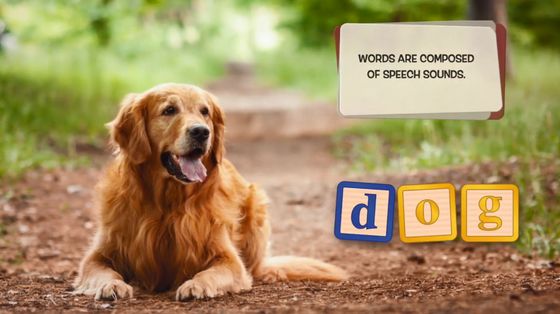
When one sound changes, it becomes a word with a completely different meaning, or it becomes a word with no meaning.

Dogs hear many words in their lifetime from their owners and others, but not many words can be learned.
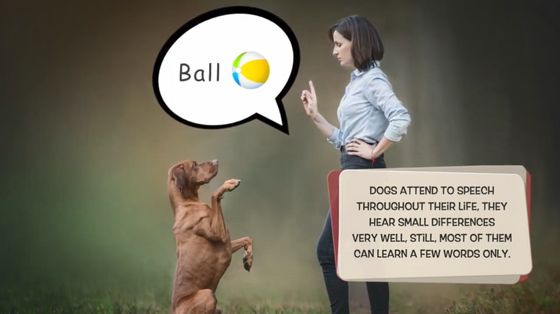
To find out why, the research team invited dogs and their owners to the lab to relax and then attach electrodes to the experiment. Since the electrodes were attached with tape, the dog was not hurt.
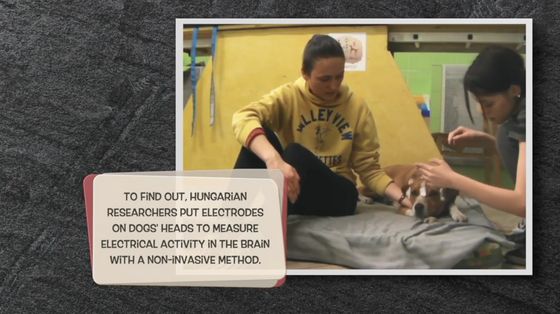
Dogs with electrodes are asked three words, 'a word they know,' 'a word that is similar to a word they know, but only one sound is different,' and 'a completely different word,' and their brain waves are measured. I did.

When I investigated the brain waves for each word ...
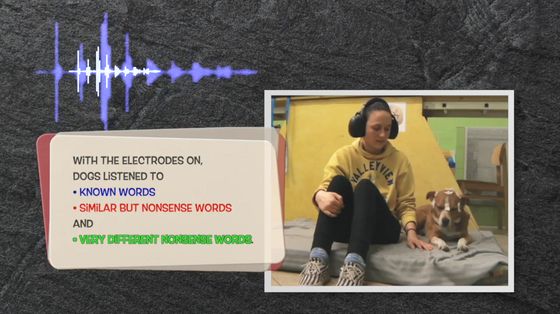
It turns out that dogs can properly distinguish between 'words they know' and 'words that are completely different.' Dogs identified each word only 200 to 300 milliseconds after they started listening, and it was shown that they had the same identification speed as humans.
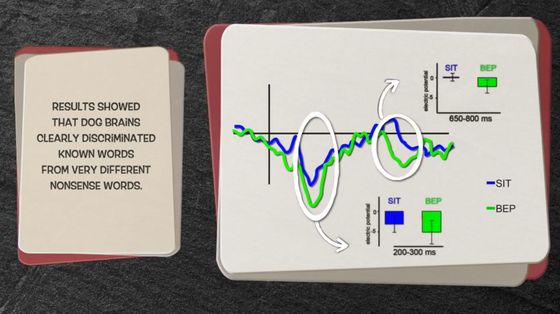
However, in the case of 'a word you know' and 'a word that is similar to a word you know but differs by one sound', it turns out that the dog does not clearly distinguish between the two. This suggests that while dogs can roughly identify several words, they do not pay close attention to each sound as to how the whole word sounds.
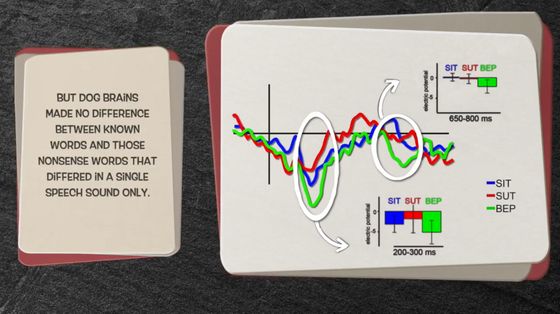
The research team points out that this pattern is similar to that of human infants younger than 14 months. Infants will be able to understand words in the first few weeks of life, but at first they will not be able to identify the detailed differences between each word. It is around 14 to 20 months after birth that babies will be able to identify each of the sounds that make up a word in detail, which is an important change for babies to acquire a lot of vocabulary. And that.
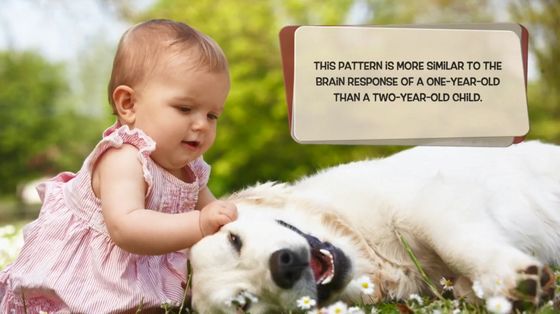
'As in human infants, the similarity of dog brain activity to words that are similar to the words of the command we know is not a perceptual constraint, but attention and processing,' said Attila Andics of the research team. It is presumed to reflect bias. Dogs may not pay attention to all the details of the voice when listening to words. Future studies will determine whether this causes the dog's vocabulary to decline. It may turn out. '
Related Posts:







